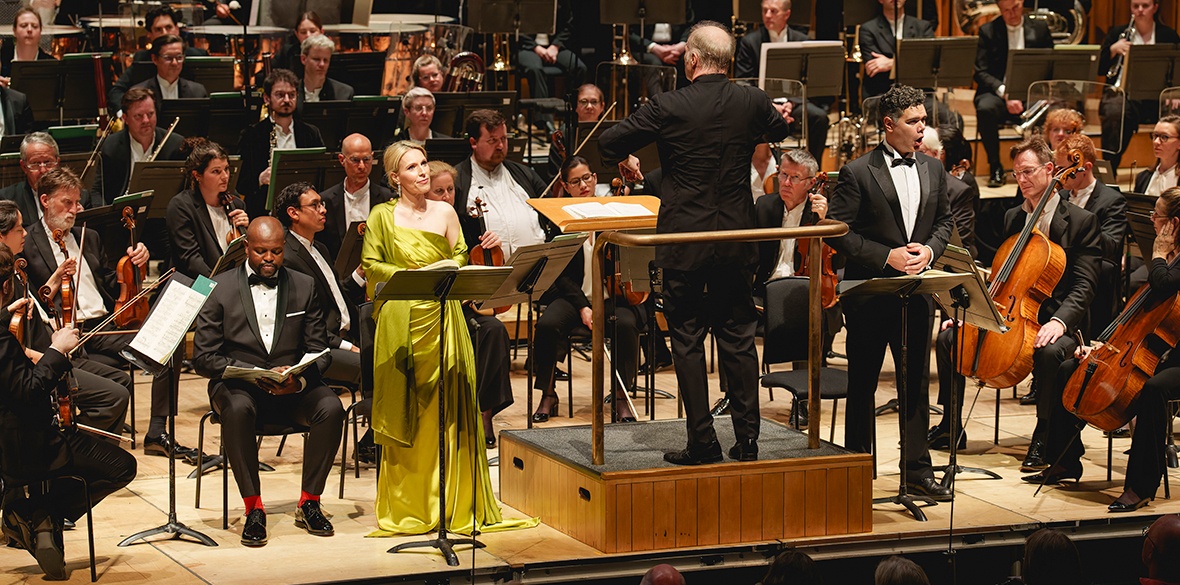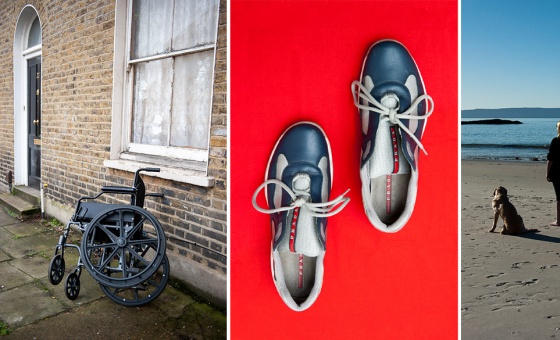This is the last article you can read this month
You can read more article this month
You can read more articles this month
Sorry your limit is up for this month
Reset on:
Please help support the Morning Star by subscribing here
Dmitri Shostakovich, Symphony No 3 / Carl Orff, Carmina Burana
The Barbican, London
A HEADY mix of Dmitri Shostakovich and Carl Orff made for a night of power and drama, exploring extremes of melody nature and history, provided by the London Symphony Orchestra and guests at London’s Barbican.
Orff’s Carmina Burana and Shostakovich’s Symphony No 3 are two major orchestral choral works written within six years of each other, both at times of unprecedented social and political upheaval.
These were two composers caught in political extremes, both answerable to their respective national authorities.
Russian composer Dmitri Shostakovich wrote his Symphony No 3 in 1929 at a time when millions of Russians had died in World War I and Stalin was five years into his reign as leader, overseeing an ongoing revolution. The symphony was written in some six weeks during a summer cruise that Shostakovich took along the Black Sea coast.
German composer Carl Orff wrote his epic work Carmina Burana in 1935, two years after Hitler became chancellor and the Nazi party had emerged as the dominant force in the country. That same year Hitler resumed compulsory military service and included Orff on his list of “divinely gifted” artists, and exempt from the call-up.
This was provocative programming by the LSO in light of the rise of the far right globally.
Shostakovich’s single movement work is based around four unequal sections, whose first two are substantial in length and the last two, including the choral finale, much shorter. The piece starts with slow mournful clarinet, before building into melodic string and strident militaristic percussion and brass lines.
Gianandrea Noseda, LSO’s principal guest conductor, provided measured control, passionate interpretation, matched with his own physical conducting style. The mid-section up tempo intensity then slowed prior to the full chorus section joining at the end, the lyrics proclaiming revolution and the overthrow of the tsar, with the London Symphony Chorus in fine voice.
So to the main event, Carmina Burana. Part of Orff’s intention in writing the work was his deep-held belief in expressive power of music at its most elemental. He used medieval poems and a magical musical language to appeal to an aspect of human existence which, independent of the age, highlights a world of tender desires and outbursts of passion, a world of love, longing and suffering.
Orff selected and arranged his texts in a relatively straightforward structure. The first part is called In Spring and In the Meadow, the second In the Tavern, and the third The Court of Love. These sections are framed by the Fortuna Chorus.
We witness huge melodic power, folk-like dance tunes and rhythmic intensity that is delicate where needed. Baritone Elliot Madore, soprano Christina Poulitsi and tenor Sunnyboy Dladla all gave stunning performances in their lead solo roles. High in drama at all times and pitch perfect, backed by the full chorus and the outstanding Tiffin Boys Choir. The orchestra’s extraordinary timing, unity and artistic expression are world class in every aspect.
The audio mix on the night was superb: there was clarity, good separation, detail as well as power the in strings and brass.
Sir Simon Rattle took the position of music director of the LSO in 2017 and one of his wish-lists was for the orchestra to have a new purpose-built 21st century concert hall. Plans were well advanced when the Covid pandemic hit and the project was scrapped. The Barbican’s acoustic is somewhat unforgiving and there are plans for new acoustic treatment and a venue revamp, but for now concert-goers have to accept the acoustics for what they are. Tonight’s sound was exceptional.
A bold night of drama, history and nature.









